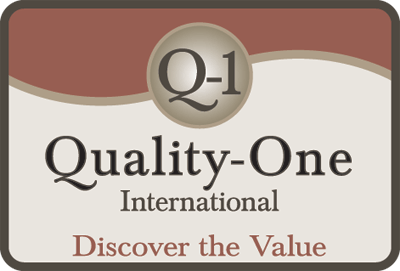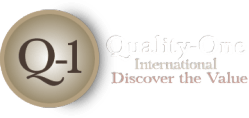AS9100D Consulting
– Guidance and Direction –
⇓ Introduction to AS9100D Consulting
⇓ Benefits of AS9100D Consulting

Introduction to AS9100D Consulting
Quality is important in any industry. Nevertheless, there are some industries such as the aviation, defense and space industries where the need for consistently high quality takes on a whole new meaning, Manufacturers within or supplying these industries must achieve and maintain the highest levels of quality in their products and services. To accomplish this, they must have an extremely effective and robust quality management system. Whether your organization is starting from the ground up in the development and implementation of an AS9100D Quality Management system, or making improvements to your existing QMS. The AS9100D standard requirements are an excellent guide for the development of such a system.
To achieve this goal, a sizable amount of time and resources will be required. In today’s very competitive world market, resources must not be wasted. For the successful implementation of the QMS while ensuring the best use of resources, a plan must be established, a veritable road map to success.
At Quality-One, we have highly qualified consultants with experience in multiple industries ready to help your organization develop and follow this essential road map. We will assist your organization in the development and implementation an AS9100D compliant Quality Management System.
Benefits of AS9100D Consulting
Receiving expert guidance and planning for the development and implementation of an AS9100D compliant QMS while defining a clear path to certification reduces the time and expense involved. Quality-One will assist in planning and provide expert guidance and support before and during the development of your QMS. The professional consultants at Quality-One will help your define and follow a clear path to your intended destination, AS9100 certification.
“If you don’t know where you are going, you’ll end up someplace else.” ― Yogi Berra
Every organization has unique needs. As discussed earlier, some are seeking to improve their existing QMS and gain AS9100D certification, while others are building a QMS from the ground up. Quality-One will tailor our Consulting Services to fit your needs. The experienced subject matter experts at Quality-One will provide your organization with expert guidance in developing and implementing your QMS and plan for certification. In addition, Quality–One consultants will provide valuable coaching and mentoring for your management staff throughout the development, implementation and certification process.
The Benefits of Quality-One AS9100D Consulting services include:
- Reducing the time required for development and implementation of your QMS
- Providing a quicker path to certification
- Improved effectiveness and efficiency of the QMS processes
- Ensuring satisfaction of all legal and regulatory requirements pertaining to your products
- Fostering an attitude of continual improvement within your organization
Our subject matter experts will make use of industry best practices while assisting your team. In addition, they shall provide guidance to your management staff throughout the process. In most cases this results in a significant improvement in the robustness and effectiveness of your QMS and its ability to meet the organization’s objectives.
Methodology for AS9100D Consulting
At Quality-One, we utilize a proven structured process during the development and implementation of your AS9100D compliant quality management system. This structured approach ensures accurate definition of the project scope, facilitating dynamic planning activities, assignment of responsibilities, and evaluation of the outcomes. This produces an operative and effectual plan for QMS development and implementation intended for first time compliance or certification to the AS9100D requirements. Achieving compliance is accomplished through a defined series of planned phases:
- Executive and Management Overview / Planning
- Current QMS Gap Assessment and Planning
- Development of Processes and Documentation
- Training and Implementation
- Internal Audit and Management Review
- 3rd Party Registration Assessment
- Maintenance and Continual Improvement
The Quality-One Seven-Phase Approach:
- Executive and Management Overview / Planning
- Planning
- Define Context of Organization
- Define Needs and Expectations of Interested Parties
- Define the scope of the Quality Management System
- Define and ensure Management Commitment to the QMS
- Define System Support and Operation Requirements
- Define High Level Processes and System Map
- Define High Level Project Plan
- Define High Level Risks to QMS System Success
- Define initial QMS objectives
- Communication and Training Plan
- Define Internal and External Communication Plans
- Define Training Plans
- Executive and Management Overviews
- Executive and Management Overviews
- Requirements and clarifications of the AS9100D standard
- Applying the Process Approach towards the quality management
- Depiction of the Organization’s Project Plan
- Planning
- Gap Assessment and Planning
- Gap Assessment
- Accurate Gap Assessment of current state vs future state of your QMS
- Utilize the QMS process map as a guide
- Perform Assessments with QMS owners and other stakeholders
- Document Results and Use Results as inputs into the QMS future development
- Planning
- Re-assess planning performed in Phase 1
- From QMS Gap Assessment Findings Revise / Update
- Project Plans
- Communications Plans
- Training Plans
- Gap Assessment
- Management System Development and Documentation
- QMS Policy Development
- Create Level 1 Policy Document
- Involve Leadership in Policy Development
- Include QMS Process Map
- Use as a guide in Policy Development
- Include QMS documents relative to the AS9100D requirements
- Management System and Process Development
- Define Organizational Roles, Responsibilities, and Authorities
- Management / QMS Owners /etc.
- Define Legal Requirements and other Requirements
- Determine QMS Initial Objectives and Develop Plans to achieve them
- Determine Support Requirements relative to your organization
- Determine Resources required
- Evaluate required worker competence to support the QMS
- Establish Training Plans as required
- Establish plan to confirm sufficient awareness and understanding of the QMS throughout all levels of the organization
- Create Quality Management System procedures applying the process approach
- Operational Planning and Control Processes
- Identification of risk and effective tools to reduce risk of a non-compliance.
- Robust Change Management Process
- Non-Conformance controls and reaction plans
- Define Performance Evaluation Requirements
- Monitoring, measurement, analysis and performance evaluation
- Internal Audits
- Management Reviews
- Define Improvement Requirements
- Nonconformance and corrective actions reporting
- Continual Improvement
- Determine Document Control and Retention Requirements
- Review / Approvals / Document Nomenclature
- Review AS9100D Requirements with appropriate parties
- Define Organizational Roles, Responsibilities, and Authorities
- QMS Policy Development
- Implementation and Training
- Implementation
- Develop Implementation Plans
- Purpose: describes the implementation requirements for the defined process in order to support the QMS Requirements
- Scope: Define the scope the QMS plan covers (processes/ areas/ etc.)
- Activity: Define required Activity Steps
- Identify: Who is Involved and Who needs to be Involved
- Timing: Define Timing Requirements
- Deliverables: Define Plan Deliverables
- Responsibility: Define Responsibilities
- Other as appropriate
- Quality Management System Training
- Develop Implementation Plans
-
- All Employee Training
- Use communications process developed in phase 1 to cover general requirements
- Communicate QMS plans and Objectives
- Risk Identification and Assessment Tools Training
- Problem solving and RCA – Root Cause Analysis training
- Process Audit methodology and Auditor training
- Leadership / Process Owner / Manager / Internal Assessors
- High Level Processes (Procedures)
- Management Training
- Review Quality Management System
- Review QMS procedures and processes
- Review Roles, Responsibilities and Authorities
- Review Resource commitments for Support and Operation of the QMS
- Review Objectives and the Plan for Achieving them
- Review Documentation Process
- Review legal and other requirements
- Functional Area Requirements
- As per Implementation Plans for those areas
- Other
- As appropriate for the unique needs of the organization
- Internal Auditor Training
- Current Auditors
- Functional Area Requirements
- Provide an AS9100D Overview
- Process Auditing Methodology training
-
- New Auditors
-
- AS9100D standard Overview
- Basics of Internal Auditing
- Proper process Auditing Methodology
- Implementation
- Internal Audit and Management Review
- Internal Audit
-
-
- Internal Audit procedure and plan
- Based on QMS Processes and Procedures
- Audits by Core and Support Functional Areas
- Internal Audits (Validate QMS Implementation)
- Define Who shall Perform Audits
- Define Audit Schedules
- Communicate Audit Schedules to Process Owners / Auditees
- Perform Audits and Initiate Corrective Actions as Required
- Produce Audit Reports for Management Review
-
- Management Review
- Plan Management Review Meeting
- Attain all process output and Analyze Data
- Summarize Analyzed Data for Review Input
- Results of Internal Audits
- Process Performance (Suitability, Adequacy and Effectiveness)
- Risks Identified and Improvement Opportunities
- Status of Corrective and Preventive Actions (CAPA)
- Follow-up Actions from previous Meetings
- Changes that could affect the QMS, and Recommendations for Improvements
- Prepare and Summarize Management Review Output Decisions or Actions Required to
- Improve the Effectiveness of the QMS and its Processes
- Improve worker awareness and knowledge of Quality Management System
- Foster a Continual Improvement Culture
- System Compliance / 3rd Party Registration Assessment
-
- Close any open actions resulting from Internal Audits or Management Reviews
- Prepare Registrar Assessment Plan with Registrar / Select Guides (Process Owners)
- Schedule the Registrar Assessment and Communicate to Process Owners and Auditees
-
- System Maintenance, Sustainability and Continual Improvement
-
- Summarize Continual Improvement Activities by Process and Align to
- Business Goals
- QMS Objectives
- QMS Planning Activities
- Measures of Effectiveness
- Summarize Continual Improvement Activities by Process and Align to
-
Continued Internal Assessment and Management Review to Assure Process and System Continual Improvement
Learn More About AS9100D Consulting
Quality-One offers Quality Management Systems Development through Consulting, Training and Project Support. Quality-One provides Knowledge, Guidance and Direction in Quality Management Systems development activities, tailored to your unique wants, needs and desires. Let us help you Discover the Value of AS9100D Consulting, AS9100D Training or AS9100D Project Support.
